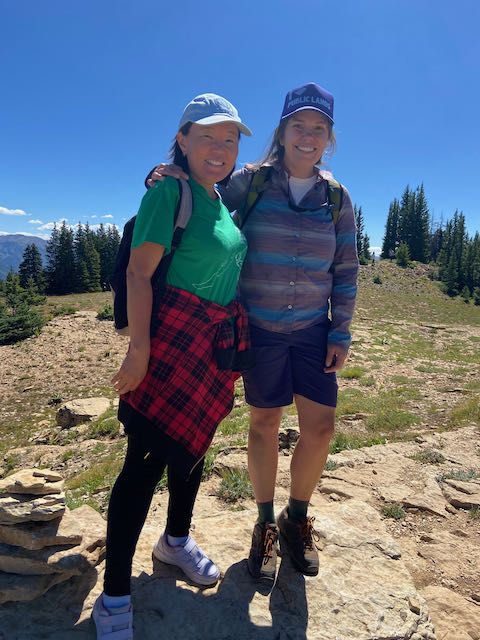Environmentalist vs. Environmental Educator
Colorado Master Environmental Educator Certification Response Emphasis on Education, Not Advocacy
Response to “Two Hats” by John Hug
As a citizen, environmentalist, community member, caring neighbor, and environmental educator I wear multiple hats. Especially living in a small town (5,000 people) within in a small valley (approximately 50,000 people) as an engaged member of the community in multiple roles, I wear multiple hats. These include Education Outreach Coordinator at Roaring Fork Conservancy, Thompson Divide advocate, St. Mary of the Crown Confirmation teacher, Colorado Mountain Club Trip Leader, amongst others.
While working at Roaring Fork Conservancy I have to wear the hat of objective science driven teacher and outreach specialist. I have to make sure I’m towing a rather even keeled objective perspective looking at issues from a holistic watershed wide view. When mobilizing fellow citizens for cause of protecting Thompson Divide, I wear a more advocate/activist hat as I’m rallying the community to voice our opinions to keep the oil and gas companies out of our watershed.
While working at Roaring Fork Conservancy I have to wear the hat of objective science driven teacher and outreach specialist. I have to make sure I’m towing a rather even keeled objective perspective looking at issues from a holistic watershed wide view. When mobilizing fellow citizens for cause of protecting Thompson Divide, I wear a more advocate/activist hat as I’m rallying the community to voice our opinions to keep the oil and gas companies out of our watershed.
It’s a juggling act to make sure I’m representing (wearing the hat) the appropriate group at any given time. However, the general public may not be able to distinguish between the different roles I play, so I have to be careful about how I act and what I represent through my words. It’s important to be aware of which hat I’m wearing so that I come across as objective and diplomatic and not emotionally charged in appropriate situations. I do feel that I’m most effective in making change when I come from this objective and diplomatic way of being both in my professional and personal civic life. Yet, it’s tough to leave the emotions at the door when walking into large heated public meetings. Some emotional passionate public comments and speaking is appropriate at times, especially when working to engage neighbors and community members to participate and show up. However, the most effective public comments and participation are when they are targeted, specific, and factual.
Hug discusses the difference between environmentalist and environmental educator. I do agree that there is a difference between the two. However, I do believe the most effective environmentalists see issues through the lens of an environmental educator. The most effective environmentalists are able to objectively weigh the many sides of an issue. They always look at all the different stakeholders values and positions to fully understand the pros and cons and effects of the issue. They also try to bring all the stakeholders to the table to have a discussion to bring interested parties to understand each other’s views and then act in a way that hopefully finds a balance between the opposing values and positions.
There are times as an environmentalist that I have had to be stubborn and stand up for issues that can’t afford to be compromised; standing up for the Thompson Divide to protect if from the consequences of oil and gas drilling including hydraulic fracturing, road building,fragmenting habitat, storing produced water,etc... One could argue that this issue is subject to balanced management. This issue has such broad reaching effects on our community’s environment and ultimately on our recreation economy in the Roaring Fork Valley. It’s an issue that is so huge that I have chosen to strongly participate and work hard to engage others in the community to participate as well.
As an environmental educator, I am charged with teaching learners how to objectively investigate an issue. I have to wear the hat of educator, not advocate/activist. I believe that students need the skills to understand complex issues that will arise in their communities whether they are environmental, social, or economic. They needs the skills to find accurate, the least biased, balanced sources of facts and knowledge of the issue. It’s my role to teach students how to ask good questions and to be able to critically think through issues. To build sustainable communities into the future, citizens need the skills to objectively investigate issues with care and objective detail.
As an environmental educator, I am charged with teaching learners how to objectively investigate an issue. I have to wear the hat of educator, not advocate/activist. I believe that students need the skills to understand complex issues that will arise in their communities whether they are environmental, social, or economic. They needs the skills to find accurate, the least biased, balanced sources of facts and knowledge of the issue. It’s my role to teach students how to ask good questions and to be able to critically think through issues. To build sustainable communities into the future, citizens need the skills to objectively investigate issues with care and objective detail.


Comments
Post a Comment